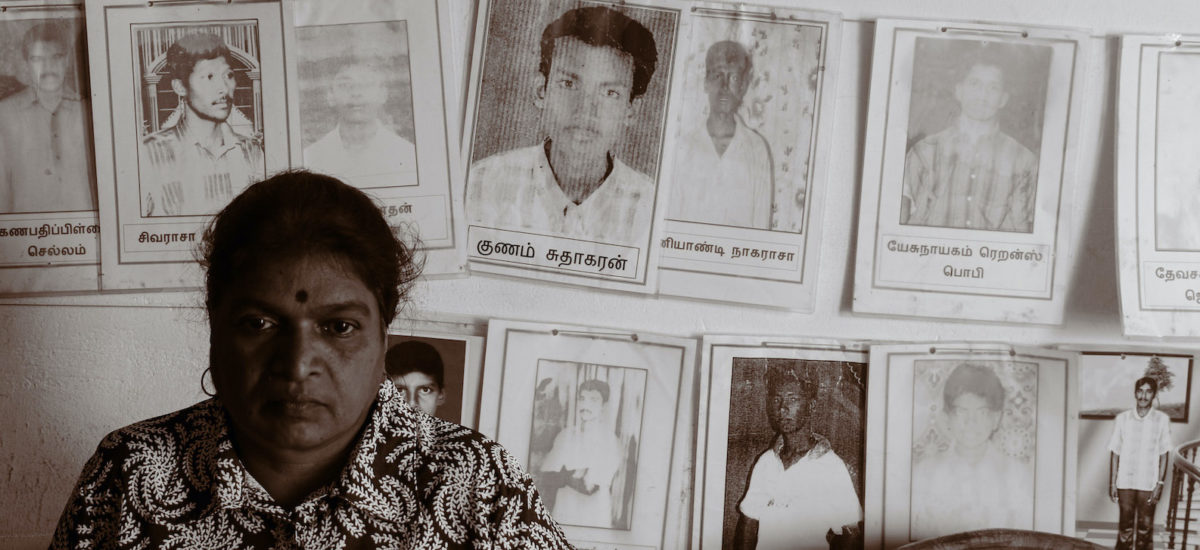“Sri Lanka has the world’s second-highest number of cases registered with the United Nations Working Group on Enforced or Involuntary Disappearances. Since the 1980s, an estimated 60,000 to 100,000 people from all ethnic and religious communities have “disappeared.”
“Many victims are believed to have been abducted, tortured, and killed by government security forces, including units operating under the country’s current political and military leaders,” said Human Rights Watch South Asia Director Meenakshi Ganguly in an article to mark International Day of the Victims of Enforced Disappearances.
“Despite calls for answers over many years, the government has prevented families of the disappeared from learning the truth about their loved ones and protected perpetrators from accountability,” she said.
Despite many attempts by the UN human rights agencies, including the Working Group on Enforced Disappearances, there are hardly any credible investigations or prosecutions on the thousands of reported cases.
It is time for the Office of the High Commissioner for Human Rights, the UN Rapporteur on Extrajudicial Killings and the Working Group on Enforced Disappearances to go beyond the legalistic approach of demanding investigations and prosecutions because this approach has not produced any success.
If this extremely brutal form of punishment is to be brought under the scrutiny of the UN human rights mechanisms, it is necessary to understand the complex factors that have led to its adoption in Sri Lanka.
While death sentences on convicted criminals are not usually put into practice in Sri Lanka, the same country has no hesitation in causing enforced disappearances through its security agencies such as the Police, the military and paramilitary agencies. In most such cases, enforced disappearances mean abduction in place of arrest, torture and the extraction of information, the killing of persons in detention and the disposal of bodies in secret with the direct or indirect approval of those in authority.
People who are subjected to enforced disappearances are those who, for one reason or another, have come into conflict with the political establishment of the country. Sometimes they are called terrorists. In enforced disappearances the accuser, the investigator, the judge and the executioner are the same people. As the act of enforced disappearance is denied, there is no way to officially find out the reasons for these acts.
The people who are subject to enforced disappearances are not the real targets that are being pursued; the real target is society in general. The need to create an environment of fear in order to prevent any form of legitimate peaceful resistance against violations of rights and injustices is the ultimate aim of these actions and it is of a political nature.
Before any progress can be made to stop these practices from the point of view of legal actions, it is important to gain insight into what has happened through studies into political, social, psychological and other aspects that have provided the justification for such actions; it requires much change in the political and moral ethos of a country before officers working for the State could be motivated to undertake actions such as causing enforced disappearances.
If a serious attempt is made in corroboration with the experts in the fields of political science, sociology, psychology and other related branches of knowledge to conduct studies into these events, it would lead to enlightened discussions in national and international arenas.
Living at a time of great communication change, gaining greater knowledge about an issue can lead to many forms of action for the eradication of such an evil rather than merely relying on the legal mechanisms. More creative and innovative approaches are needed because many decades of attempts to deal with the problem only by legal means have failed.
Relying only on legal means by demanding investigations and prosecutions has allowed governments to adopt highly deceptive dealings with UN agencies. One of the latest attempts was the establishment of the Office on Missing Persons – for all practical purposes the office itself is now missing. The acceptance of deceptive reporting has removed all seriousness from government responses to UN demands.
The impact of disappearances
Extraordinary acts of cruelty can kill in physical terms but they can also have a deadening effect on the cognitive faculties and emotional capacities. I have seen this happening to individuals, groups and entire societies.
I have known many innocent people who became victims of enforced disappearances, one of whom was illegally arrested by accident and thereafter disappeared. This led to the gradual eating away of his brother’s body and mind and eventual death. Medical doctors and psychologists could not explain his illness or cause of death. Similarly, another person who had seen the pieces of his brother’s body after he had been killed by rebels died after a slow decline for which there was no rational explanation.
Anyone familiar with families of disappeared people knows how often such tragedies happen, demonstrating a mind, body and soul connection. At the same time, many others suffer various cognitive disorders from the awareness of such violence and cruelties. Deeper and deeper levels of confusion and demoralisation slowly erode cognitive functions.
The change that occurs is at the level of being itself; the layers of meanings embedded in each person’s consciousness, when challenged in a fundamental way, leaves a negative impact not only on individuals but also on societies. When similar occurrences happen in societies, the negative impact enters into the human consciousness everywhere.
As a result, many types of deaths occur. Moral norms and associated beliefs that sustain life like a living stream deaden so that the living stream dries up. It finally reaches a point when such deaths themselves are celebrated as a triumph.


